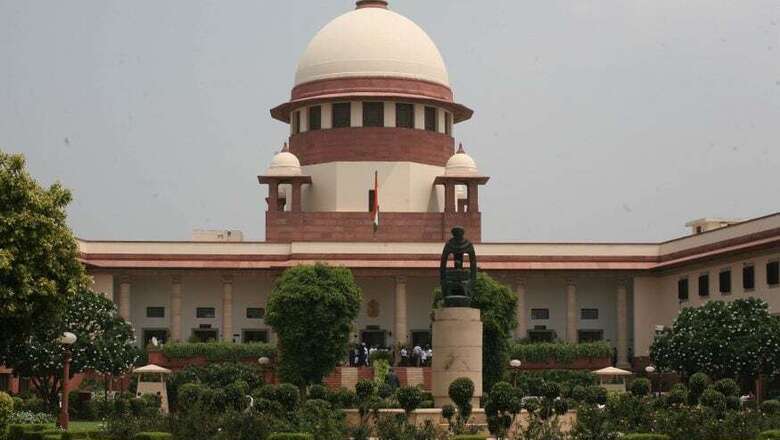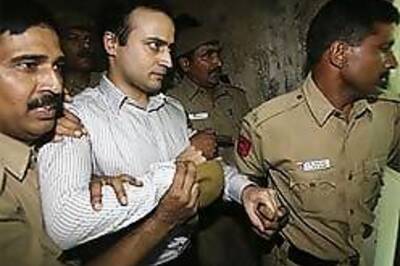
views
The Supreme Court on Tuesday came down heavily on the Centre for seeking more time to install CCTV cameras and recording equipment at offices of investigating agencies, including the CBI, the ED and NIA that conduct interrogations and have the power of arrest. The apex court said the issue concerned the rights of citizens under Article 21 of the Constitution while granting three weeks to the Centre to file an affidavit on the matter.
A bench, headed by Justice RF Nariman, had said on December 2,2020, that states and Union Territories (UTs) should ensure that CCTV cameras are installed at each and every police station, at all entry and exit points, main gate, lock-ups, corridors, lobby and reception as also areas outside the lock-up rooms so that no part is left uncovered.
In addition, the Union of India was directed to install CCTV cameras and recording equipment in the offices of the Central Bureau of Investigation (CBI), National Investigation Agency (NIA), Enforcement Directorate (ED), Narcotics Control Bureau (NCB), Department of Revenue Intelligence (DRI), Serious Fraud Investigation Office (SFIO), any other agency which carries out interrogations and has the power of arrest, said the bench, also comprising Justices KM Joseph and Aniruddha Bose.
On Tuesday the Centre was asked to submit compliance report. However, Solicitor General Tushar Mehta circulated a letter seeking adjournment of the hearing, according to a report in Livelaw.
Displeased over the letter, Justice Nariman told Mehta, “We are getting a distinct impression that you are dragging your feet. What kind of letter have you circulated?”
When the solicitor general said the adjournment was sought regarding ‘ramifications’ of the order, Justice Nariman said the matter concerned the rights of citizens. “We are not concerned about the ramifications. This concerns the rights of citizenry under Article 21 of the Constitution. We are not accepting the excuses given in the letter.”
The SG then urged the court to ignore the letter and submitted that funds for installing the CCTVs would have to be allocated by state governments. Justice Nariman then drew Mehta’s attention to paragraph 19 of the court’s last order passed on December 2. It had two parts – one speaking about the setting up of a Central Oversight Body and second part was about installation of the CCTV cameras at central agencies.
“We are not concerned with the Central Oversight Body today. We are concerned with the second part of the paragraph,” the court said, adding, “You tell us the funds that are allotted.”
The SG then sought 10 days to file an affidavit on the matter. The court granted three weeks’ time to the Centre to file an affidavit stating exactly how much financial outlay is required and the time line within which it is going to carry out order.
Read all the Latest News, Breaking News and Coronavirus News here

















Comments
0 comment